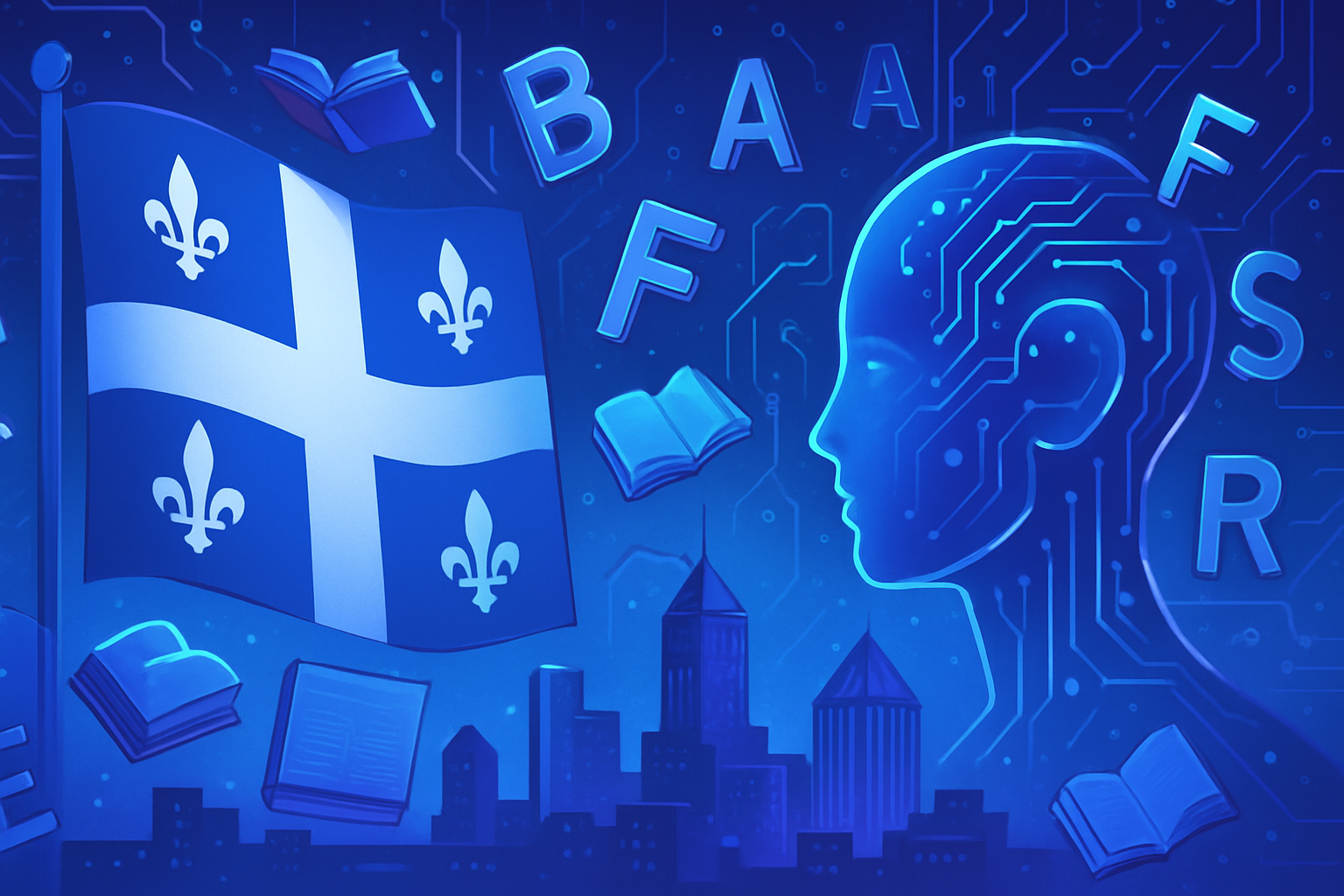The preservation of the French language is a crucial battle for Quebec. Artificial intelligence shapes our linguistic reality and gradually erodes the use of French. The dominance of English in AI models compromises the lexical and cultural richness of French speakers. Affirming ourselves in the digital world involves a resolute commitment to defend our language. A true linguistic sovereignty is emerging on the horizon, where adapting technologies to our identity becomes essential. _The challenge goes beyond a simple claim_, it is a struggle for the sustainability of a unique culture.
The preeminence of English in artificial intelligence
The dominance of English in large artificial intelligence (AI) models raises concerns in Quebec. This French-speaking province faces the threat of a decline in the French language, particularly in the technological context. AI models, such as ChatGPT, are largely trained on English data, making the understanding and appreciation of Francophone culture complex.
A challenge for Quebec’s identity
Preserving the French language in the field of artificial intelligence is also part of a dynamic of identity and sovereignty. For Quebec, language is not just a tool for communication, but also a vector of collective identity. The rise of AI technologies represents an unprecedented opportunity, but it brings risks for the linguistic heritage of the province.
The limitations of current models
According to experts, such as Luc Lespérance from HEC Montreal, most AI models like ChatGPT show gaps in understanding the subtleties of Quebec French. Although these models can simulate dialects and expressions, their knowledge remains superficial and often incorrect. A recent study reveals that less than 8% of the content used to train version 3 of ChatGPT is not in English.
Quebec’s response to these challenges
To address these gaps, local initiatives are emerging. Quebec is developing projects aimed at encouraging the creation of artificial intelligence models in French. These initiatives emphasize the importance of diversifying the databases used to train AIs, thereby including cultural characteristics specific to Quebec. This approach strengthens linguistic and cultural assertion in a rapidly expanding technological field.
Concrete examples of innovations
French companies like Gladia are leading the way with innovative solutions, offering audio-to-text conversions tailored to the linguistic specificities of the region. Similarly, giants like Google are announcing support for French in their artificial intelligence products. Google’s Gemini project recently integrated features in French, translating an effort to reduce the linguistic divide.
The role of education and research
Quebec’s higher education institutions are committed to training experts in artificial intelligence, capable of working on linguistic projects. Partnerships between universities and companies are multiplying, promoting research on AI applications that respect the French language. These initiatives aim to equip the Francophone community with the skills necessary to navigate a technology landscape dominated by English.
The collaboration of the state and the private sector
The government of Quebec, in concert with the private sector, is exploring measures to promote the use of the French language in AI technologies. Closer coordination between public and private actors could facilitate the implementation of favorable language policies, ensuring increased visibility for the French language. Projects such as Albert, the generative artificial intelligence from the state, demonstrate this clear intention of linguistic preservation.
Conclusion on the evolution of mindsets
In light of these realities, an evolution of mindsets is necessary to foster a future where the French language occupies a prominent place in the technological field. The combined efforts of the community, government, and businesses can make a difference. The challenge is to promote French without relinquishing technological innovation.
Frequently Asked Questions
What are the main threats to the French language in the field of artificial intelligence?
The main threats include the predominance of English in AI models, the lack of Francophone data to train systems, and the perception that applications in French are less performant.
Why is it important to defend the French language in artificial intelligence?
The preservation of the French language in artificial intelligence is crucial to maintaining Quebec’s cultural and linguistic identity, as well as ensuring equitable access to technology for Francophones.
How can Quebec promote the use of French in AI models?
Quebec can promote French by supporting research and development of Francophone AI models, increasing investments in French linguistic resources, and encouraging companies to create AI tools that respect this language.
What initiatives are underway in Quebec to support the French language in AI?
Initiatives include creating partnerships between universities and companies, funding linguistic research projects, and programs to raise awareness among developers about the importance of creating AI solutions in French.
What challenges do researchers face in developing AI in French?
Researchers face challenges such as insufficient French data, training biases due to primarily English corpora, and the need to design algorithms that take into account Francophone linguistic and cultural specificities.
How could artificial intelligence enrich the French language?
AI could enrich the French language by offering improved translations, innovative language learning tools, and facilitating the creation of adapted content in French, thereby reinforcing its use in various fields.
How can users contribute to preserving French in AI?
Users can contribute by supporting platforms that promote the use of French, choosing applications in French, and providing feedback to improve the linguistic tools offered.






